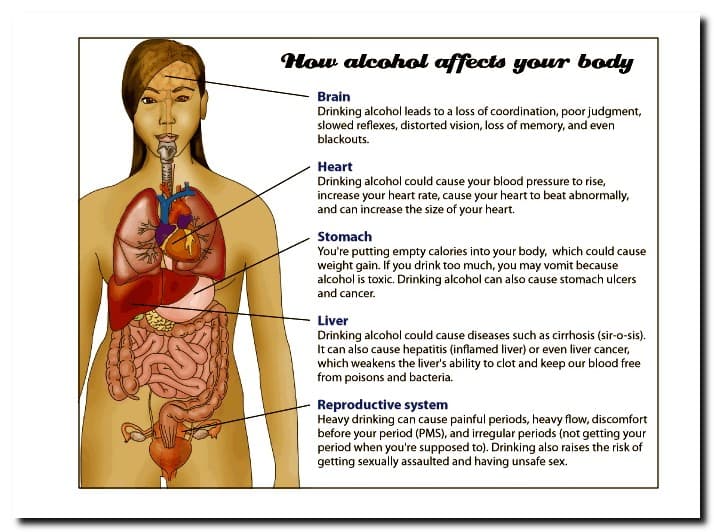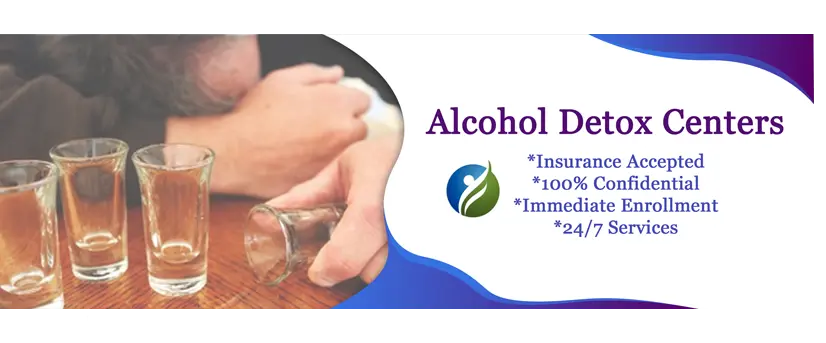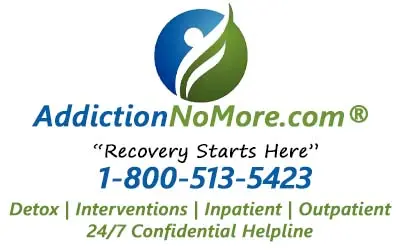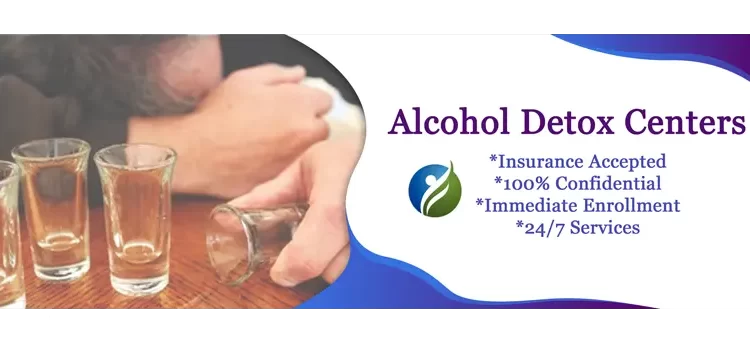Alcohol Detox Centers
Many people who struggle with alcoholism, manage their withdrawal symptoms by going to Alcohol Detox Centers. Alcohol dependence is usually a progressive addiction that takes time to develop. Most alcoholics can’t tell when they went from a recreational, responsible drinker, to needing to drink just to get through the day. Once dependency has developed, alcohol detox is highly recommended to ensure a medically safe withdrawal. For a list of detox programs near you, call our trained staff today. We will help you find the best solution and ensure a safe and medically supervised detox.
1-800-513-5423
What you will learn:
- Do I need to detox?
- Where to go for Alcohol Detoxification
- Will Insurance Cover my Detox
- Signs of Alcohol Use Disorder
- What Causes Alcohol Withdrawal?
- Detox Does NOT Cure Addiction

Do I need to detox?
When a person has found themselves dependent on alcohol and is experiencing alcohol withdrawal symptoms going to a treatment center with a detox on site can be the better option. Finding the best local detox center can be harder than you would think. You can’t just look in your phone book, or on Facebook to pick a detox center in your area and expect a good result. There needs to be extensive research before you commit to detox for treatment. For most people who are dependent on alcohol, their decision to enter into a detoxification program did not come easy. Finding the best detox center for your particular situation makes all the difference. If you are looking for detox centers or rehabs for alcoholism in your area, you should first consider what exactly you need, want, and are looking for. Make sure the detox center is medically set up to handle the complications that can ensue from detoxing from alcohol. Alcohol detoxification can have many complications that can lead to serious health risks and even death. Do not try to quit without seeking medical advice from an alcohol detox professional.Where to go for Alcohol Detoxification
There are many different places, where a total detox program for alcoholism can take place with 24-hour medical supervision. Most rehab programs have a specific detox process that they follow or support, for their incoming clients. Alcohol rehab centers know the danger that detoxifying the body from the harmful effects of alcohol can have and use their protocols to ensure a safe transition into treatment for alcoholism. Most alcohol treatment programs will want to make sure that the individual is not experiencing withdrawal symptoms before accepting them to their programs. Alcohol treatment programs will not start therapy until the client is stable and ready to start the rest of their program to handle alcoholism. There are several in-home and hospitalization-type detox centers in every state.
To make sure that the individual going through alcohol detox is safe and medically stable, there may need to be medications prescribed to ensure the safety of the client. To help with anxiety and psychological withdrawal from alcohol, benzodiazepines are commonly used to minimize this effect. The use of Benzos for sedation can help prevent seizures, allowing for a safer detox process. Benzodiazepines are effective in preventing some types of alcohol withdrawal. It is highly addictive and should be only administered in a monitored setting to ensure the safety of the client. Anticonvulsants and anti-seizure medications may be needed in conjunction with Benzodiazepines. Anticonvulsants are not usually prescribed as a stand-alone medication for alcohol withdrawal. If used in conjunction with Benzodiazepines, the two medications help ensure the safety and stability of the patient. Stopping drinking or going cold turkey is never recommended without at least medical supervision. Alcohol withdrawal can be fatal, as the brain and central nervous system rapidly come out the alcohol-induced suppression. The sudden removal of alcohol from the central nervous system can have life-threatening consequences.

Will Insurance cover my detox program?
Getting your insurance to cover an alcohol detox program will depend on your insurance policy and the benefits available for this type of service. Addiction specialists will help you determine exactly what your benefit is and the coverage available for alcohol detox. Do not attempt to contact your insurance on your own, as this can be harmful to the process, due to the insurance qualifications that they have set forth to determine if detox and treatment are warranted or not. Call us now to discuss options for detox in your area. Being informed as to what options are out there to treat alcoholism is a very important first step in the detox process.1-800-513-5423

Signs of Alcohol Use Disorder
Alcoholism can be mild, moderate, or severe, based on the amount of symptoms you are experiencing.
Signs and symptoms can include:
- Wanting to stop or cut back on the amount you drink and not being able to
- Spending a lot of time drinking, getting alcohol, or recovering from alcohol use (hangover)
- Feeling a strong urge to get drunk or craving to drink alcohol
- Being unable to limit the amount of alcohol you drink at a time
- Blacking out
- Developing a tolerance to alcohol, drinking more to feel drunk or you have a reduced effect from the same amount
- Failing to fulfill major obligations with friends or family, at work, school, or home due to repeated alcohol use
- Continuing to drink alcohol even though you know it’s causing physical, social, work, or relationship problems
- Giving up or reducing social and work activities and hobbies to use alcohol
- Using alcohol in situations where it’s not safe, such as when driving or swimming
- Experiencing withdrawal symptoms — such as nausea, sweating, and shaking — when you don’t drink or are drinking to avoid these symptoms
What causes alcohol withdrawal?
The causes of alcohol withdrawal are highly individualized and can be influenced by several factors, including length of time drinking heavily, the amount of alcohol consumed each time drinking, family history of substance or alcohol abuse, Childhood Trauma, underlying mental disorder, and stress disorders. When a person uses alcohol in conjunction with drugs, the potential complications during the withdrawal process may pose a challenge for some detox facilities. Make sure to disclose all medications and illicit drugs, if any, that you are currently or recently have taken to ensure that the doctors have all the information needed to ensure not only your safety but your comfort while going through the process of withdrawal from alcohol.If you are a chronic drinker, alcohol can stay in your system for varying lengths of time, depending on your metabolism, weight, and level of activity daily. Do not attempt to detox on your own if you are experiencing the early effects of alcoholism and the symptoms of withdrawal. Once alcohol consumption is stopped, the individual can expect to experience varying withdrawal symptoms, usually consisting of the following list.
Common Symptoms of alcohol withdrawal (Usually occurring 6-12 hours after the last alcoholic beverage)
- Minor hand tremors
- Sleep patterns disrupted
- Stress and anxiety
- Loss or weakening of appetite
- Sweating
- Headaches
- Audio and sensory hallucinations
- Possible seizures
- At 48-72 hours, the body starts to panic
- Hallucinations can get serious, involving sight, sound, and touch
- Delirium tremors(This can be fatal in up to 5% of all cases recorded, usually more deadly to older alcoholics who have poor liver function. The person’s history and symptoms of past withdrawal attempts will help in determining what level of care is most beneficial and medically safe for each client.)
- Extremely disoriented
- Heart rate increases, temperature increases and blood pressure also increases to dangerous levels in some cases.
- Medications that are commonly used in alcohol detoxification procedures.
- Some extreme cases without medical intervention can include death.

When your spouse, teen, adult child, friend, or any other loved one is facing an underlying addiction problem in their life and they don’t want to get help, an intervention is necessary. It is imperative that you get them help from a professionally trained interventionist team.
Detox does not cure alcoholism
Once the body is free from the harmful effects alcohol has on the body, there is the mind that needs to be worked on to ensure long-lasting abstinence. There is no cure for any addiction. There is a life-long process that will need to be supported to flourish. 95% of all alcoholics who do not follow up detox with some form of psychological counseling will fail in their recovery.How We Can Help
1-800-513-5423

Sources
Mayo Clinic
SAMHSA Alcohol
Mental Health Substance Abuse Coverage
Erik Epp – Content Author




